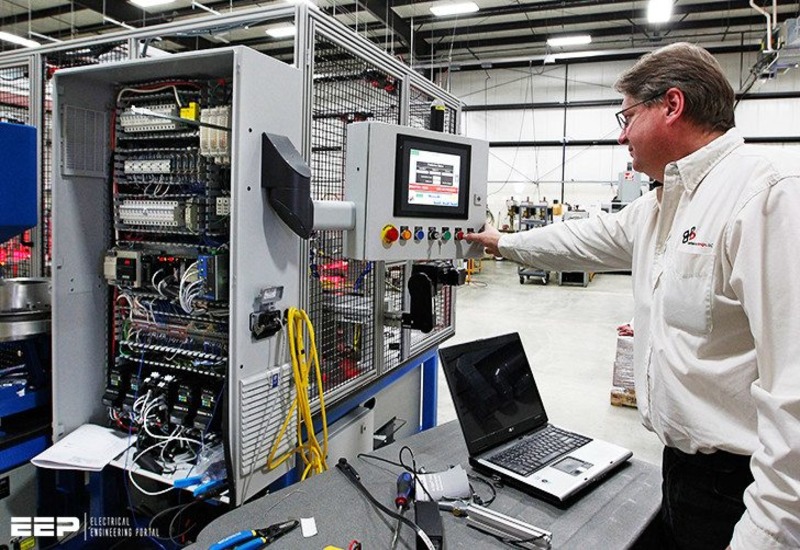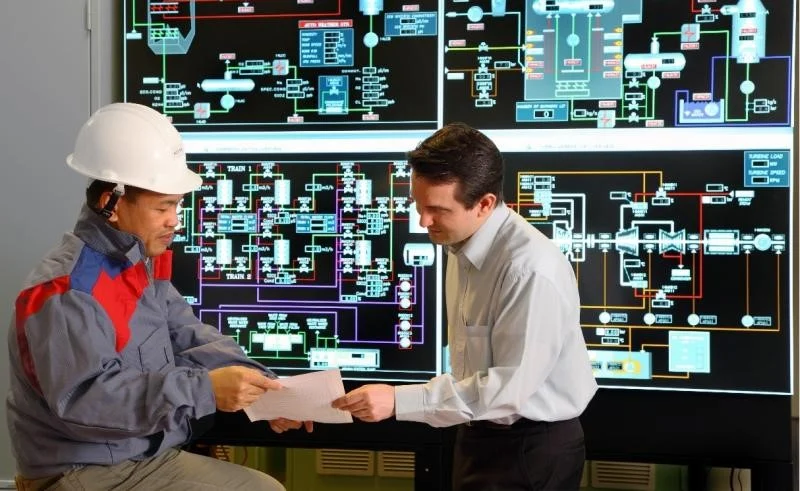In the ever-evolving field of engineering, numerous specialized roles have emerged to meet the demands of automation and control systems. Two such roles, automation engineers and controls engineers, often find themselves working in similar environments and on analogous projects. However, a closer look reveals that while there are shared objectives, there are also distinct differences that set these roles apart.
Similarities
Automation engineers and controls engineers share several commonalities in their professional endeavors.
1. Core Objective
Both automation engineers and controls engineers have a core objective: to enhance efficiency and streamline processes. Their work revolves around harnessing the power of technology and software to control various systems, ensuring that operations run smoothly and with precision.
2. Industrial and Manufacturing Sectors
Automation engineers and controls engineers are frequently found in industrial and manufacturing sectors. They play pivotal roles in optimizing processes, reducing downtime, and improving the quality of production, which are fundamental in these industries.
What’s the Differences Between Automation Engineers and Controls Engineers?

Automation engineers design and implement systems that can perform tasks automatically, without the need for human input. They work with a variety of technologies, including programmable logic controllers (PLCs), robots, and sensors. Automation engineers are often involved in all phases of a project, from design to installation to commissioning.
Controls engineers focus on the design and analysis of control systems. Control systems are used to regulate the behavior of a system, such as a manufacturing process or a power plant. Controls engineers use their knowledge of mathematics, physics, and engineering to design systems that meet the specific needs of the application.
One way to think about the difference between automation engineers and controls engineers is that automation engineers are focused on the “how” of automation, while controls engineers are focused on the “why” of automation. Automation engineers are responsible for designing and implementing the systems that make automation possible, while controls engineers are responsible for designing the systems that control the automation process.
Key Differences Between Automation Engineers and Controls Engineers:
| Characteristic | Automation Engineer | Controls Engineer |
| Focus | Design and implementation of automated systems | Design and analysis of control systems |
| Skills | PLCs, robots, sensors, programming, systems engineering | Mathematics, physics, engineering, control theory |
| Typical applications | Manufacturing, logistics, transportation | Aerospace, automotive, power generation, chemical processing |
What does a controls and automation engineer do?
Control and automation engineers are responsible for the design, development, implementation, and maintenance of control systems for machines, processes, and industrial plants. They use their knowledge of electrical engineering, mechanical engineering, and computer science to create systems that are efficient, safe, and reliable.
CAEs work on a wide range of projects, from designing simple control systems for individual machines to developing complex control systems for entire manufacturing plants. Their work is essential in many different industries, including manufacturing, transportation, energy, and healthcare.
Some of the specific tasks that CAEs may perform include:
- Analyzing and modeling systems to identify control needs
- Designing and developing control algorithms
- Selecting and configuring hardware and software components
- Programming and testing control systems
- Integrating control systems with other systems, such as production planning systems and quality control systems
- Commissioning and troubleshooting control systems
- Providing training and support to operators and maintenance personnel
Is automation and control a good career?

automation and control is a good career. It is a growing field with many opportunities for advancement. Automation and control engineers are in high demand in a variety of industries, including manufacturing, healthcare, energy, and transportation.
According to the US Bureau of Labor Statistics, employment of automation and control engineers is projected to grow 6% from 2020 to 2030, much faster than the average for all occupations. This growth is expected to be driven by the increasing demand for automation in manufacturing and other industries.
Automation and control engineers earn a good salary. The median annual wage for automation and control engineers was $97,830 in May 2021. The highest-paid automation and control engineers earned more than $160,000 per year.
There are many benefits to working in automation and control. Automation and control engineers have the opportunity to work on cutting-edge technology and to make a real difference in the world. They also have the opportunity to travel and to work with people from different cultures.
Here are some of the pros and cons of a career in automation and control:
Pros:
- High demand for skilled workers
- Good salaries and benefits
- Opportunity to work on cutting-edge technology
- Opportunity to make a real difference in the world
- Opportunity to travel and work with people from different cultures
Cons:
- The work can be challenging and demanding
- Long hours may be required
- May need to work in remote or challenging environments
Conclusion
While automation engineers and controls engineers share common goals and often work in similar environments, they are not the same. Their focus areas, skill sets, and applications differ, leading to unique career paths and opportunities. The next time you encounter these professionals in your workplace, you’ll have a deeper appreciation for the specialized roles they play in the world of engineering.
Other article you might like: Methods of preliminary estimation
FAQs:
1. What is the role of an automation engineer?
An automation engineer is responsible for designing, developing, and implementing automated systems and processes in various industries. They work to integrate different components and technologies to enhance efficiency and productivity.
2. What does a controls engineer do?
A controls engineer focuses on designing, configuring, and maintaining control systems within industrial processes. They work with technologies like Programmable Logic Controllers (PLCs) and Human-Machine Interfaces (HMIs) to regulate and optimize systems.
3. Are automation engineers and controls engineers the same?
No, while they share some similarities, automation engineers and controls engineers have distinct roles. Automation engineers focus on system integration and broader automation solutions, whereas controls engineers concentrate on control systems within processes.
4. What are the key skills required for an automation engineer?
Automation engineers need skills in software development, system integration, troubleshooting, and a deep understanding of the technologies and components involved in automation, such as robotics and SCADA systems.
5. What skills are essential for controls engineers?
Control engineers require expertise in control theory, instrumentation, and programming of control systems like PLCs. They should also be skilled in configuring HMIs and fine-tuning control algorithms.
6. In which industries do automation engineers work?
Automation engineers can find employment in various industries, including manufacturing, automotive, aerospace, pharmaceuticals, and building automation, among others.

